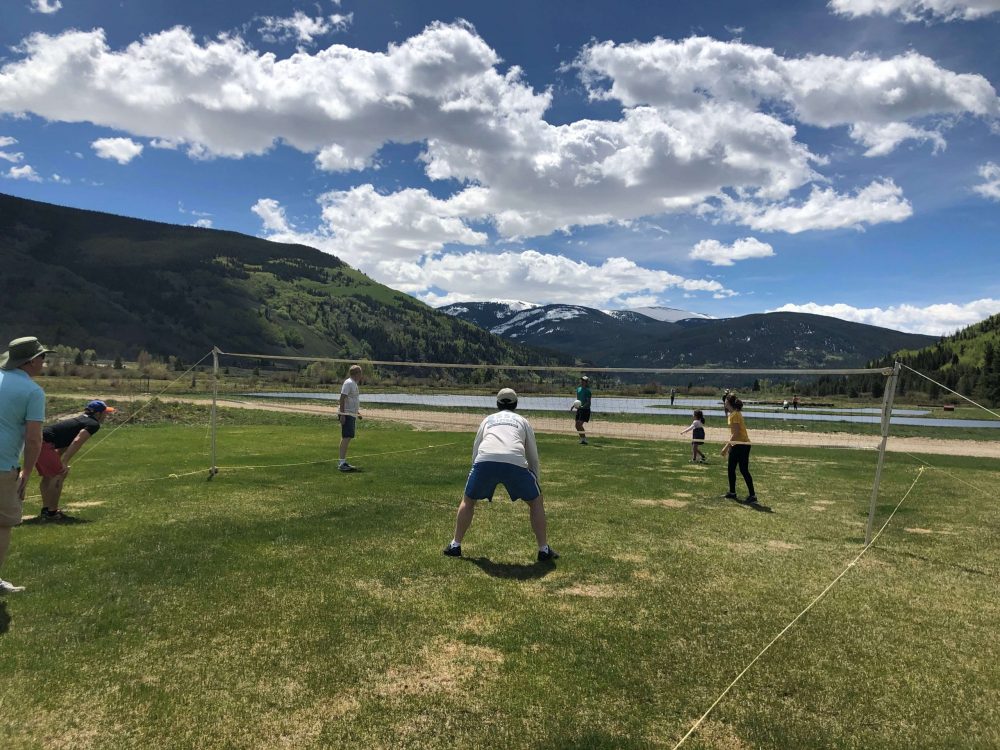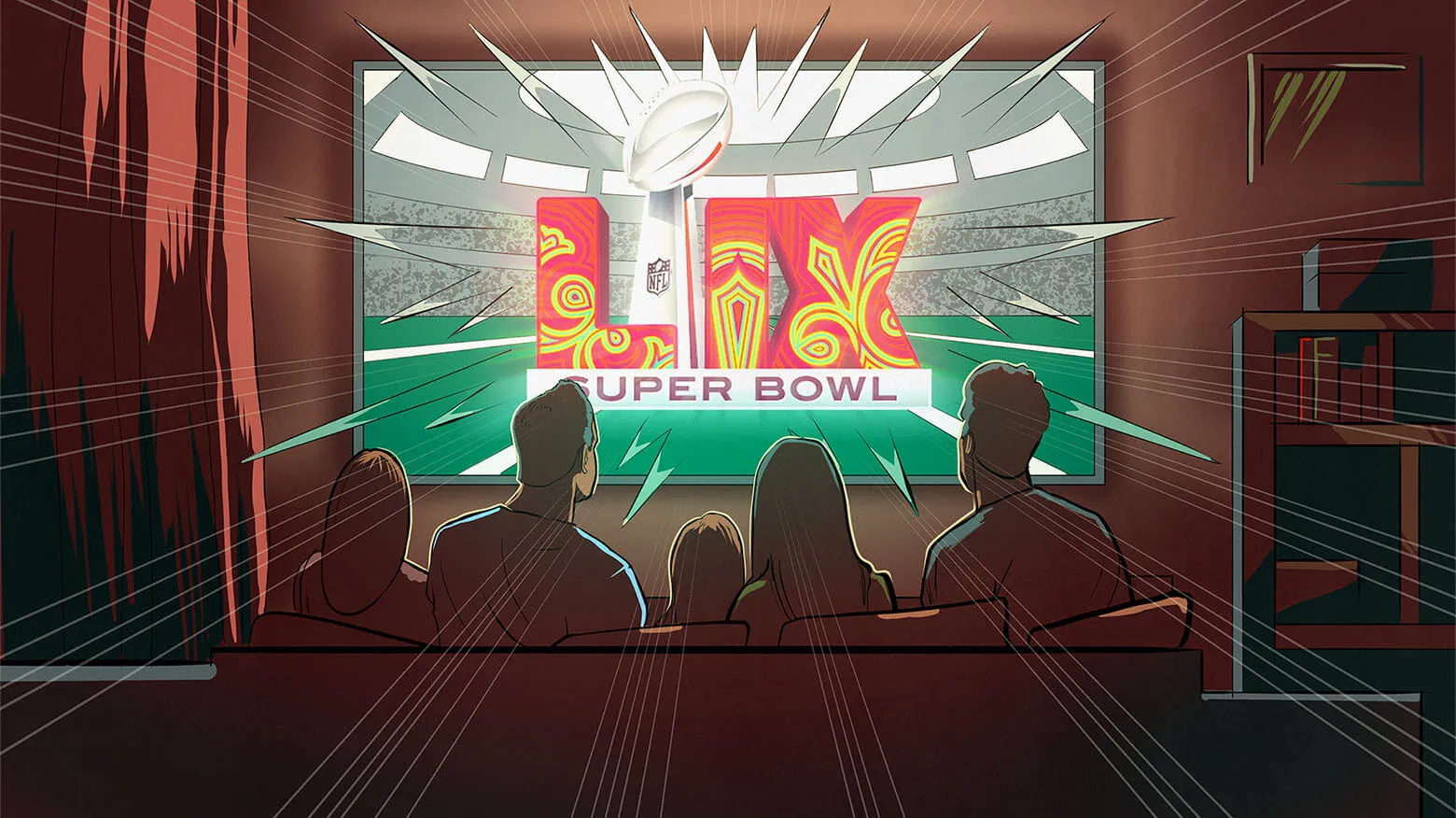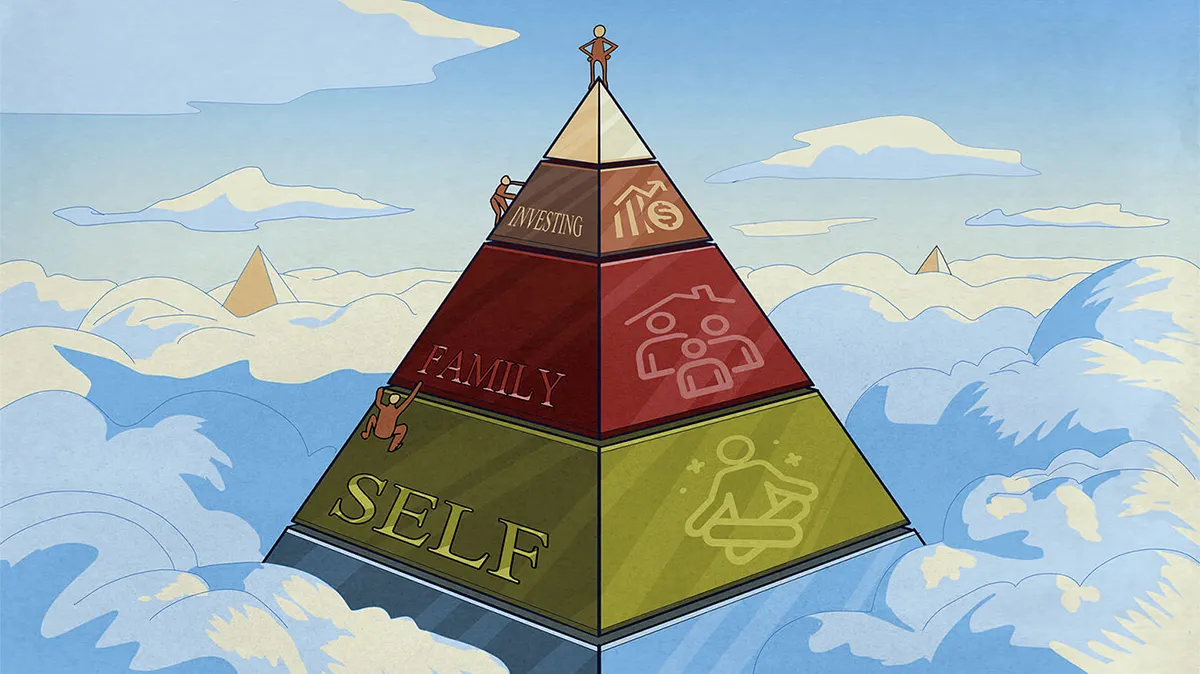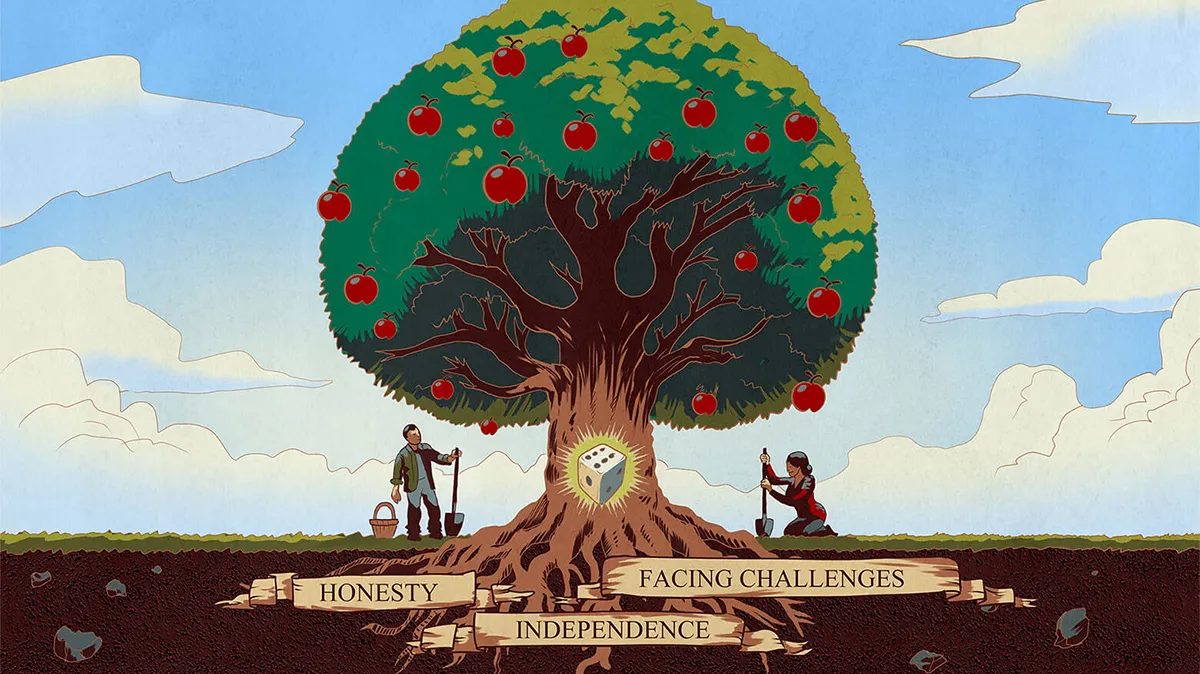February 2020
I have to tell you, I am shocked by the maturity of my 14-year-old daughter, Hannah (and the immaturity of her father).
Last summer Hannah started playing volleyball. She really fell in love with the game. She went to volleyball camp and joined a volleyball league in September. At first, Hannah played on a team for 14-year-old’s. She was one of the best players. Her coach told her that he wanted to make her a team captain. Then the program director noticed Hannah’s play and told me that Hannah had “good hands” and suggested that we transfer her to a more advanced team of 15-year-olds (Hannah just turned 14). I instantly started calling her “good hands Hannah.”
My wife and I hesitated a little, because we weren’t sure if it would be better for Hannah to be the best player on a weak team or a weaker player on a better team. (Malcom Gladwell’s books would suggest the former.) But Hannah told us that she really wanted to get better and it would help her to be on a stronger team. So she joined the more advanced team. This was a month ago.
Yesterday, Hannah and I got up at 6 in the morning to drive to a tournament that was an hour away in Colorado Springs. Hannah’s team played four other teams. Each game has two or three sets. Hannah stood on the sidelines for all the games and did not touch the ball even once.
I was really upset, for two reasons. First, I was thinking, what was the point of our using our Sunday to drive 65 miles and spend eight hours in a very noisy arena (you don’t know what loud means until you hear 200 teenage girls scream non-stop), just to see Hannah’s teammates play and Hannah sit on the sidelines. So, if I am honest with myself, this reason was more about me. We could have been skiing instead or doing something else fun.
The second reason was the one that was really breaking my heart. I saw Hannah on the sidelines while the other girls played, and I felt that she must feel like a second-hand citizen. But Hannah smiled throughout and cheered and high-fived her teammates when they scored. I looked at her and thought, she must feel miserable inside. Her pain must be my pain times a hundred.
Hannah’s team won every single game. The team moved on to a higher division. At the end every player got a victory pin. They took a group picture. Hannah was incredibly excited and happy. Her father… not so much.
When we got in the car to drive back, I asked her if she wanted me to talk to the program director about going back to the old team. Hannah said (I am writing this almost verbatim), “Dad, absolutely not. Being part of the team is not just about playing in the tournaments. It is participating in the practices. This was a very important tournament where we had the chance to move up to the next division. If I were my coach, I wouldn’t have played me, either. I am new to the team. She doesn’t know me well yet. Also, I am not as good as other girls on the team. They’ve played for years; I started less than six months ago. I learned so much watching the games from the sidelines. I could see the mistakes of the other girls and learn from them. I learned a lot today. I know where I need to improve. I need to work harder. Dad, I also got a victory pin!”
I said “Well, maybe we should go skiing during tournaments when they don’t play you. What’s the point of us being there?” Hannah retorted, “You don’t understand! If I don’t show up, then who is going to give them emotional support? When I’m on the sidelines, I’m cheering them on. I’m helping them. My team won! This is very important. I am part of the team.”
I was speechless. We drove for two minutes in silence. I had thought the smile I saw on Hannah’s face during the tournament was sitting on top of giant pain. I could not have been more wrong. She was happy for her team. She felt like she was part of something bigger than her.
My brother Alex called me and asked if Hannah got to play. (I had called him a few times during the tournament, complaining about Hannah not playing). I told him what she told me. I said, she is so much smarter and more mature than her father. My 14-year-old daughter showed me what it means to be part of a team. I have no idea if Hannah will be playing volleyball a year from now (I hope she will), but I know she is prepared for the life ahead of her. She’ll be a great asset to any company or organization she decides to start or join.
Ten years ago I would have looked at spending a full day at these tournaments as a chore. Driving an hour each way. Did I mention 200 teenage girls screaming? There are so many other things I could be doing. But awhile back I realized that there is a finality to everything in life and especially to kids being … well, kids. This changed my perspective on life. Instead of looking at driving my daughter to tournaments as an obligation and feeling victimized for being forced to do it, I choose to do it. And I really, honestly look forward to doing it. As we drive, Hannah and I listen to music and podcasts, and we talk. We go to lunch. We spend time together.
Post-Script: BC (Before Coronavirus)
P.S. I wrote this article in early February. I was jet-lagged from my trip to Europe, but I intentionally stretched this jet lag from a day or two into a week and used it as a creativity boost to write the series of articles I call the Jet Lag Series.
As I reread it today, it feels like I wrote it in a different era – in the BC (before coronavirus) era. Part of me is missing the normalcy of BC – seeing my relatives, my friends, going out to concerts and restaurants. I’d be delighted to drive Hannah to volleyball practice, or even to drive her 65 miles to a volleyball tournament packed with screaming teenage girls.
We tend to appreciate what we have only when it is taken away from us. In what I am about to say, I am going paper over the fact that people are sick and dying and that millions have (temporarily) lost their jobs. But a supermajority of people have been impacted by COVID-19 in a more superficial way – we are locked down with our loved ones at home.
This is now how I choose to look at the situation. Let me tell you a story. Ten years ago or so, my family – my wife and I, the kids, and my aunt – were driving through a park. I was driving my wife’s minivan and didn’t notice that we were low on gas and … we ran out of gas. The car stopped dead in the middle of a large state park. My wife was initially upset that we were stuck in the middle of nowhere. The normal me would have been upset, too. But the parent in me thought, “What would my father say and do?” I said to my family, “Think about it: If we drove through the park and nothing happened, it would have been just another time that we drove from point A to point B. Now we have a little adventure that we’ll remember. Our lives are not threatened; we are all safe. Let’s just make the best of it.”
This story lacks drama and suffering (thank god). We simply called my father and asked him to bring us some gasoline. In the meantime, we played soccer and walked in the beautiful park. An hour later my father brought us the gas.
My kids and I filed this little misadventure as a happy memory of when we ran out of gas in the park and did fun things. My wife put it into the mental file of when I forgot to check if we had enough gas in our (her) car before we started driving.
For most (not all) of us, the situation today is not much different from this drive we had in the park. We have an opportunity to turn it into a happy future memory. Embrace it. We cannot change what we are going through today, but we can change how we look at it.
Until last Friday I worked out of my office. My kids begged me to work from home. I stopped going to the office, and I am so glad I did. But not for health reasons (there is only one other person in the office, everyone else is working remotely).
I have never worked harder in my life than I have over the last month. I am doing research nonstop, building models, launching a new product (the All-Terrain Dividend Portfolio), talking on the phone to my investment (friends) network, writing weekly letters to clients. Now that I’m at home, I try proactively to take time to do something with the family here and there. Mia Sarah sneaks into my office with Connect Four and tells me “I’ll beat you,” and we play a few sets. We all go for 15-minute bike ride, have lunch and dinner together outside, or go for a walk. I get a lot of work done but still spend time with the people that matter the most to me.
Our life is anything but normal, but other than the real pain others are going through, and despite my normal life being put on hold, I wouldn’t change a thing. I am embracing this experience. If not for coronavirus, ten years from now it would have been just another March and April in 2020. For now, and despite the real hardship many are experiencing, we have the opportunity to create happy memories that we will look back on when we transition to life AC (after coronavirus).









0 comments